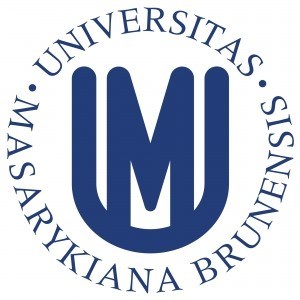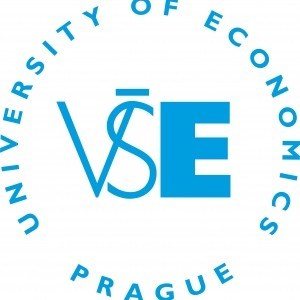Photos of university / #_charles.university_
The Economics and Finance Master's program at Charles University offers a comprehensive and rigorous education designed to prepare students for successful careers in the fields of economics, finance, and related disciplines. The program combines theoretical foundations with practical applications, providing students with a deep understanding of economic theories, financial markets, quantitative methods, and policy analysis. Throughout their studies, students will engage with core topics such as microeconomics, macroeconomics, econometrics, financial analysis, investment strategies, and international economics, among others. The curriculum is meticulously designed to foster analytical thinking, data-driven decision-making, and strategic problem-solving skills, which are essential in today’s dynamic economic environment.
Students will have the opportunity to learn from experienced faculty members who are actively involved in research and consultancy work, ensuring that the education remains relevant and aligned with current economic and financial developments. The program also emphasizes the development of soft skills such as communication, teamwork, and critical thinking, enabling graduates to effectively collaborate in multicultural and multidisciplinary settings. In addition to traditional classroom instruction, students can participate in workshops, seminars, internships, and research projects that provide valuable practical experience and networking opportunities within the business community.
The language of instruction is primarily English, attracting a diverse student body from around the globe and preparing graduates for international career prospects. The program aims to equip students with the knowledge and skills necessary to excel in various roles, including financial analysts, economic consultants, policy advisors, risk managers, and further academic pursuits. Upon completion of the program, graduates will be well-prepared to analyze complex economic and financial issues, develop strategic solutions, and contribute to the growth and stability of organizations or contribute to policy development at national and international levels. This program at Charles University stands out for its combination of academic excellence, practical relevance, and international orientation, making it an ideal choice for ambitious students seeking a challenging and rewarding educational experience in economics and finance.
To complete the programme, the students must (i) collect 180 ECTS credits and (ii) defend their Bachelor’s Thesis. The available courses consist of mandatory courses, elective and optional courses. The mandatory and elective courses are taught at the Institute of Economic Studies (IES), the optional (off-field elective) courses can be taken at any department of Charles University (including Czech language classes).
Courses
Mandatory courses
Mandatory courses introduce the students to microeconomics, macroeconomics and provide students with nontrivial tools of mathematical analysis and statistics. Mandatory courses are intended to give a broad overview of major topics in economics and finance, and to provide a solid background for further studies of specialized elective courses. Bachelor thesis seminars prepare student for the selection of the topic of the thesis and provide a guide for writing the thesis.
- Principles of Economics I and II
- Microeconomics I and II
- Macroeconomics I and II
- Introductory Mathematics
- Mathematics I and II
- Introductory Statistics
- Statistics
- Introductory Banking
- Financial Economics
- Econometrics I
- Bachelor Thesis Seminar I and II
Elective courses
Elective courses cover a wide range of specific areas in economics and finance, which allows the students to specialize in the field of their interest. The topics include finance and banking (e.g. introductory banking, financial accounting, international finance, public finance), management (e.g. strategic management, financial management), economic policy (e.g. economic policy, global financial crisis), international trade and European economic integration. We also offer courses in complementary areas (e.g. history of economic thought, game theory and political economy, introduction to sociology).
Optional courses
Off-field elective courses can be taken at any department of Charles University or at any partner university. Students may take 27 ECTS credits outside of the Institute of Economic Studies. These credits can also be used to follow the Czech language classes offered by the Faculty of Social Sciences.
The BEF programme is open only to applicants who have already completed (or are about to complete) their secondary education. There is no formal entrance test and we evaluate the complete application package provided by the applicant. We welcome applicants with a strong motivation and a consistent past performance track record. Applicants must be able to demonstrate sufficient competence in mathematics and in English. To evaluate mathematical abilities of applicants, we require one of the following documents:
- predicted or final score in International Baccalaureate (IB) Diploma Group 5 - Mathematics;
- College Scholastics Ability Test (Suneung),
- General Certificate of Education Advanced Level (A Levels) including Mathematics;
- SAT test (Critical Reading, Mathematics and Writing); SAT Subject test Math Level 1; SAT Subject test Math Level 2;
- ACT Composite score,
- SCIO Matematika or
- an UJOP Podebrady final Mathematics exam.
- (For an SAT test, please use our institutional code 7280 if you wish for your results to be sent directly to us).
Except of native speakers and graduates of international high-schools where language of instruction was English, applicants should include a copy of their results of either IELTS (required minimum is 6,5 points overall with 6,5 points from at least three components) or TOEFL (required minimum is 90 points; please use our institutional code 6633 if you wish for your results to be sent directly to us) or equivalent (eg. CAE).
The Financing specialization within the Economics and Finance program at Charles University provides students with a comprehensive understanding of financial management practices, financial markets, investment strategies, and banking systems. The curriculum is designed to equip students with both theoretical knowledge and practical skills necessary for careers in financial institutions, corporate finance departments, or regulatory bodies. The program emphasizes core concepts such as financial analysis, valuation, risk management, and the functioning of financial instruments, including derivatives and securities. Students are introduced to quantitative methods used in financial decision-making and learn to apply modern software tools for financial analysis. The program also covers macroeconomic and microeconomic foundations relevant to financial markets and institutions, ensuring students gain a holistic view of the economic environment influencing finance. Practical components include case studies, internships, and projects aimed at fostering critical thinking and problem-solving abilities. Graduates will be prepared for various roles such as financial analyst, risk manager, investment advisor, or banking specialist. The teaching staff comprises experienced academics and industry professionals, ensuring that students receive education grounded in current market practices and regulatory standards. The program maintains close ties with financial institutions, offering networking opportunities and internships that enhance employability. The language of instruction for the Financing specialization is primarily English, catering to international students and preparing graduates for the global financial job market. Admission requirements typically include a strong background in mathematics and economics, and the program often seeks candidates with prior knowledge of quantitative methods. The program duration is usually three years, leading to a Bachelor’s degree, with possibilities for continuation into a Master's program for more specialized training. Overall, the Financing studies at Charles University aim to give students a competitive edge in the dynamic and globally interconnected financial sector.
The Economics and Finance program at Charles University is a comprehensive and rigorous course designed for students interested in understanding the principles of economic theory and financial management within a global context. This program aims to develop students’ analytical abilities, critical thinking skills, and practical knowledge to prepare them for careers in banking, finance, public sector management, consulting, and international organizations. The curriculum covers a broad range of subjects including macroeconomics, microeconomics, financial markets, monetary policy, investment strategies, corporate finance, econometrics, and economic policy analysis. Students are introduced to quantitative methods, statistical techniques, and data analysis tools essential for research and decision-making in economics and finance.
The program is structured to offer a solid theoretical foundation coupled with practical applications. It typically includes lectures, seminars, case studies, and project work to ensure students gain both conceptual understanding and real-world experience. Many courses are taught by experienced faculty members who are actively involved in research and consultancy, enriching the learning environment with current developments and industry insights. Research projects and internships are often encouraged, providing students with valuable exposure to professional settings and enhancing their employment prospects after graduation.
Students also have access to extensive university resources, including modern libraries, online databases, and specialized software for statistical analysis and financial modeling. The international outlook of the program is emphasized through partnerships with foreign universities, exchange programs, and a curriculum that incorporates international case studies and global economic issues. Graduates of the program are expected to possess strong quantitative skills, a profound understanding of economic principles, and the ability to analyze complex financial data, enabling them to excel in competitive environments spanning academia, industry, and government institutions.
The program caters to both Czech and international students, often offered in English to facilitate global participation. Admission requirements typically include a good command of English, prior secondary education in related fields, and a strong interest in economics and finance. Upon completion, graduates receive a diploma recognized throughout Europe and beyond, opening opportunities for further studies or professional careers in economics, finance, policy analysis, and related fields. Continuous updates to the curriculum ensure that the program remains relevant amidst changing economic landscapes, technological advances, and new financial regulations, making it an attractive choice for students aiming to become proficient economic and financial analysts, advisors, or policymakers.









